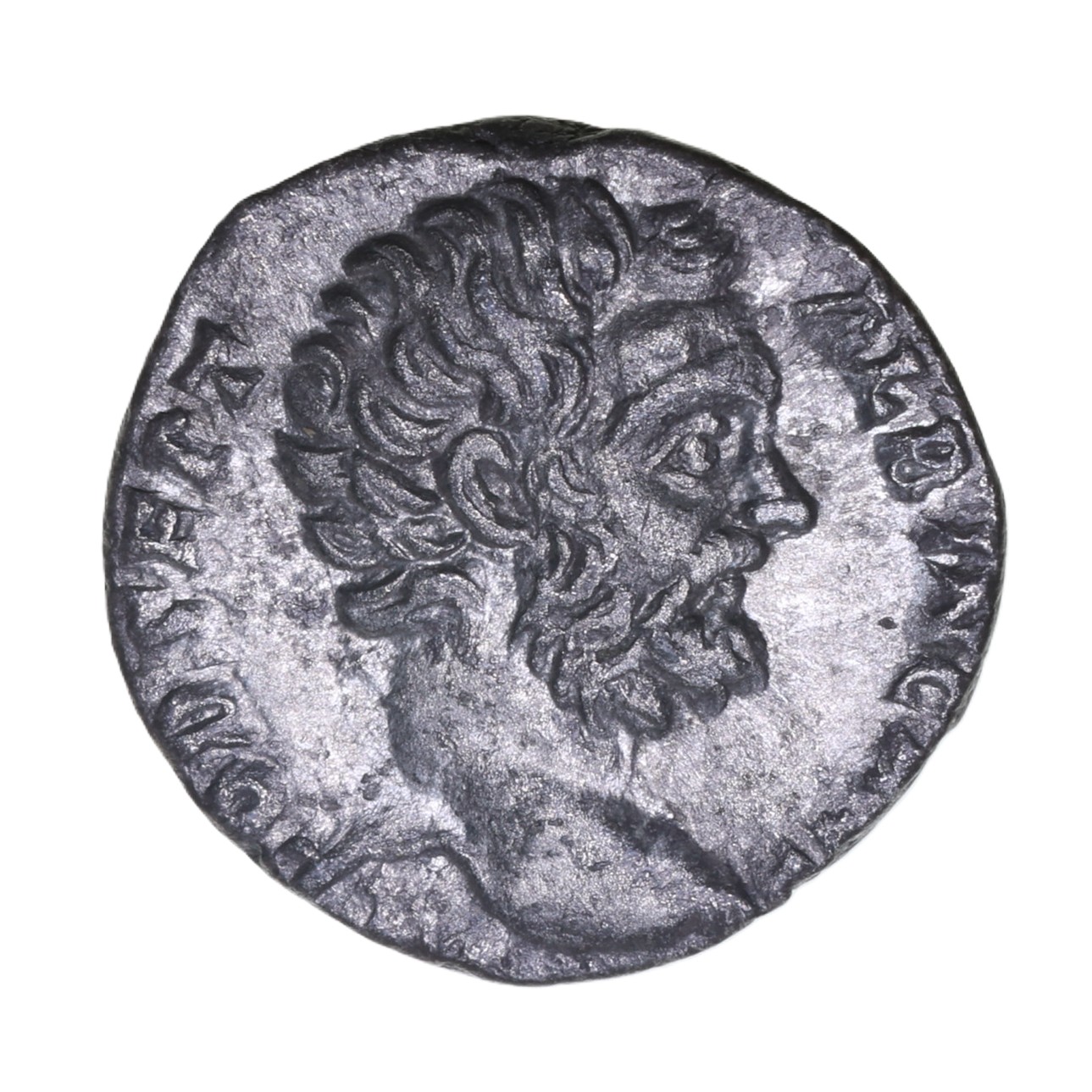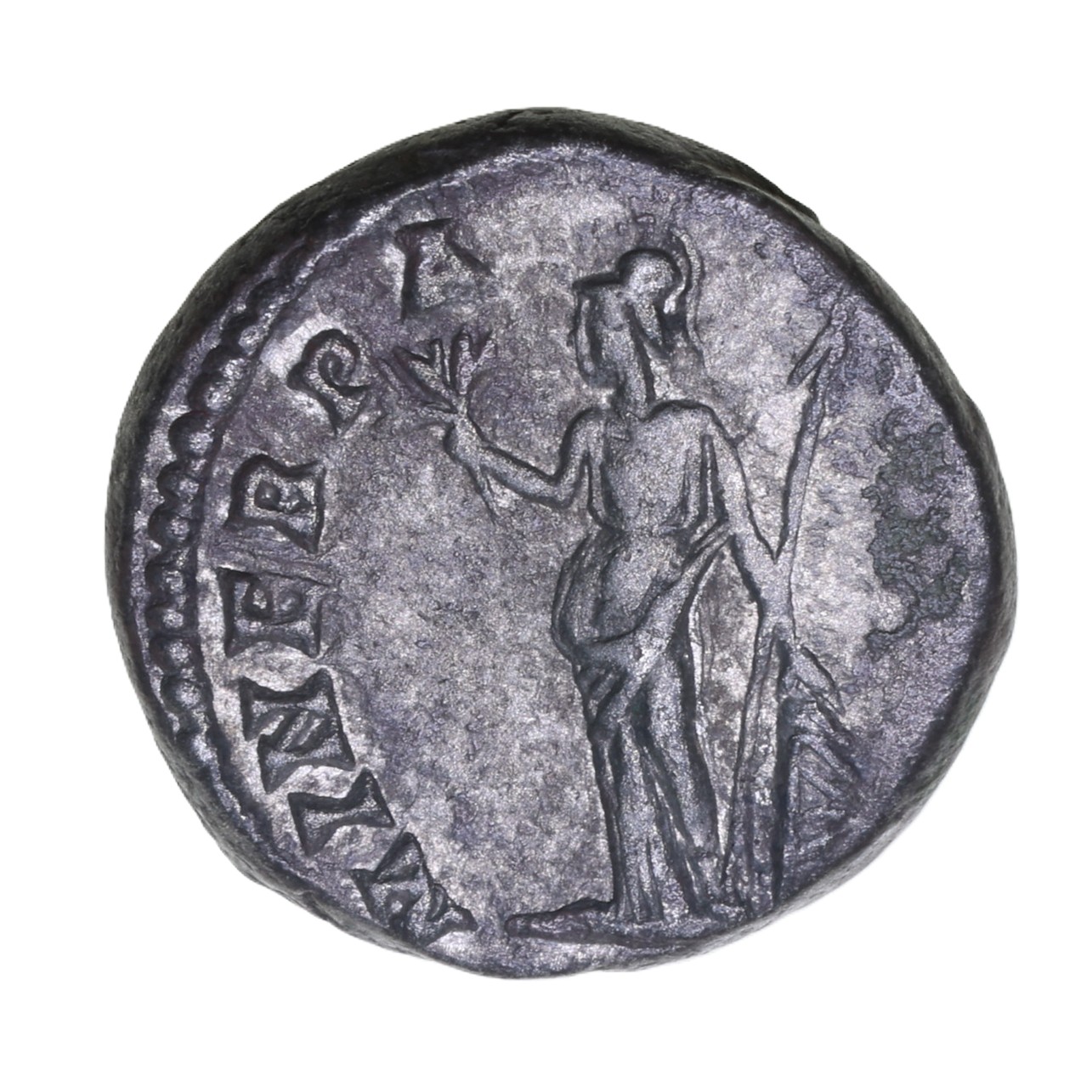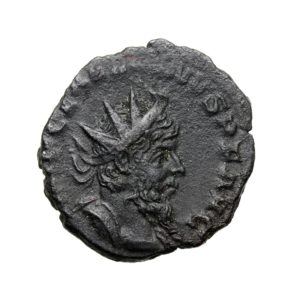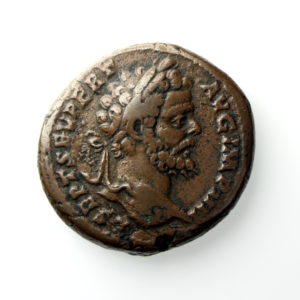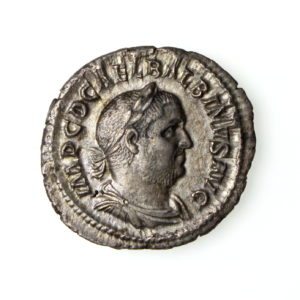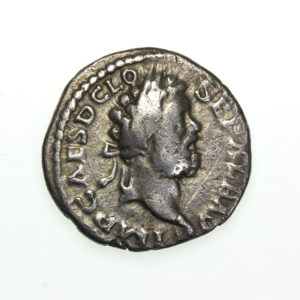Clodius Albinus AD 193-195 Silver Denarius Rome * British Find*
£165.00
Clodius Albinus as Caesar AD 193-195 Silver Denarius
Minerva standing left
Rome mint
RCV6144; 17mm, 3.06g.
This coin was found in the vicinity of Beckfoot Roman Fort, Cumbria.
Classical References for Bibra
The sole classical geographical source for the Roman name of the Beckfoot fort is the Bribra entry in the Ravenna Cosmology (R&C#119), which appears between the list entries for Alauna (Maryport) and Maglona (Old Carlisle).
The Bibra Garrison
To date, only one inscribed stone has been uncovered from Roman Beckfoot, which fortunately provides the name of one of its garrison units; Cohors II Pannoniorum, a five-hundred strong infantry unit from the province of Pannonia, the region of the modern Czech Republic.
Clodius Albinus
Clodius Albinus, along with Septimius Severus, were natives of North Africa. Born into a prominent family he joined the military where he served with distinction under Marcus Aurelius and Commodus. Serving his first consulship in AD 187 he was afterwards appointed governor of Lower Germany and later of Britain. When Pescenius Niger prepared for his showdown with Septimius Severus Albinus joined forces with Severus accepting the junior rank as Caesar. Although he was later to rebel and proclaim himself Augustus Severus had by this time decided that he wanted to promote his own son Caracalla thus making Albinus’ position untenable. The issue was decided in AD 196 when Severus decisively beat Albinus in a battle fought near Lugdunum in Gaul. Albinus perished but was later beheaded and his head put on display in Rome.
Out of stock

